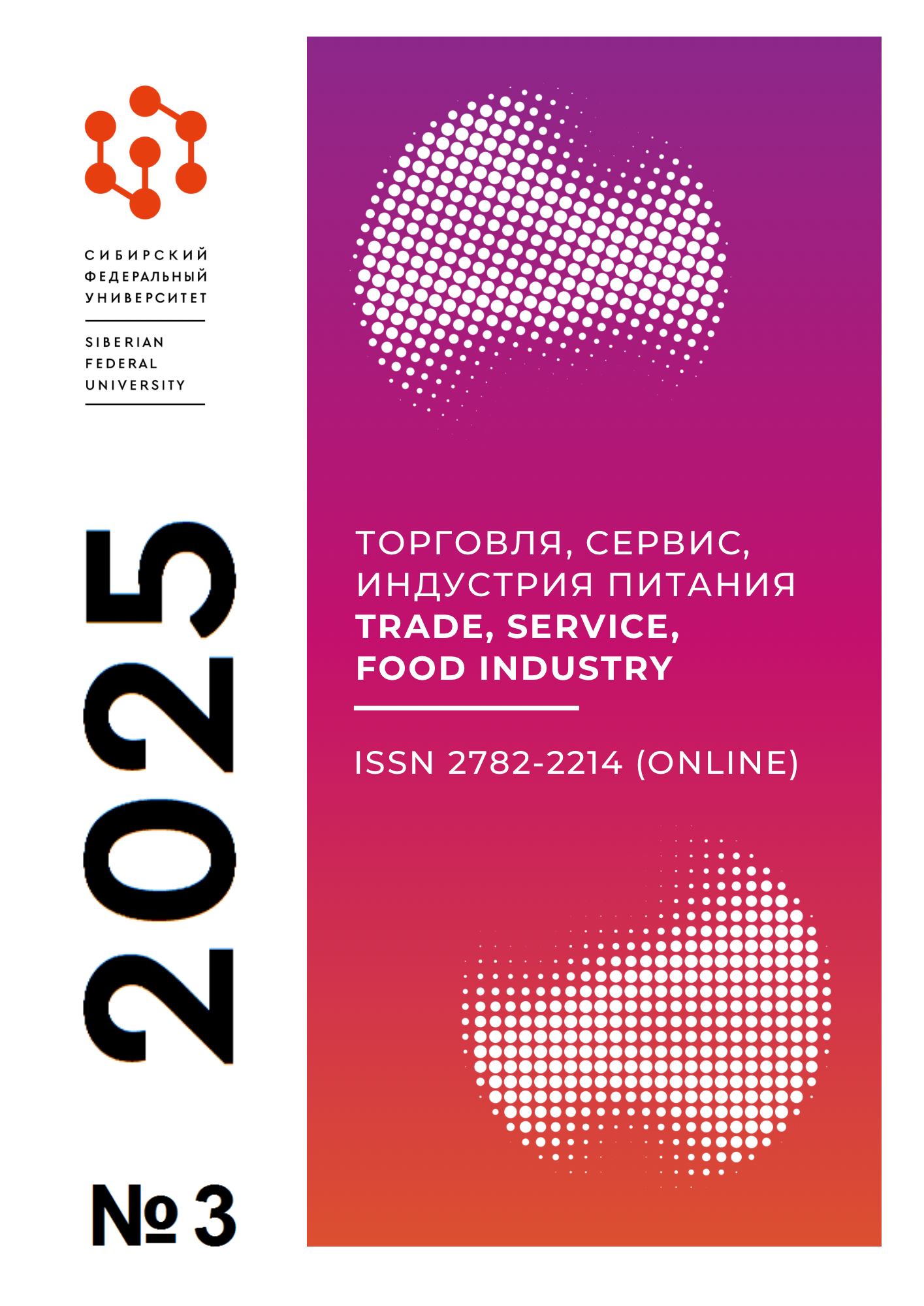from 01.01.2024 until now
Krasnoyarsk, Russian Federation
UDC 658.114
UDC 005
The article examines the genesis of the ecosystem concept, traces its evolution from biological foundations to modern interpretations in economics, innovation and the digital environment. Various approaches to the definition of an ecosystem are analyzed, key characteristics and stages of development are identified. The author's definition of an ecosystem is proposed, taking into account current trends and critical comments. The practical importance of understanding ecosystem evolution for innovation management, business development and stimulating economic growth is shown.
ecosystem, genesis, evolution, innovation ecosystem, digital ecosystem, system approach, interaction, interdependence, economy, innovation, digital transformation
1. Tensli, A. G. (1935). The use and abuse of plant concepts and terms. Ecology, Vol. 16, No. 3, 284–307.
2. Vinberg, G. G. (1968). Biological productivity. Moscow : Higher School, 384.
3. Bertalanfi, L. von. (1969). General theory of systems: a critical review. In the collection of translations of Research on the general theory of systems. Moscow: Progress, 520 (Pp. 23–82).
4. Harmaakorpi, V., Rinkinen, S. Regional development platforms as incubators of business ecosystems: the example of Lahti, Finland. [Electronic resource] URL: https://onlinelibrary.wiley.com/doi/10.1111/grow.12375 (Date of access: 02.04.2025).
5. Karpinskaya, V. A. (2018). Ecosystem as a unit of economic analysis. Systemic Problems of domestic Mesoeconomics, Microeconomics, and Enterprise Economics : Proceedings of the Second Conference of the Department of Modeling Production Facilities and Complexes of the Central Research Institute of the Russian Academy of Sciences. Moscow : Central Economic and Mathematical Institute of the Russian Academy of Sciences, 125–141.
6. Moore, J. F. (1993). Predators and Victims: a new ecology of Competition. Harvard Business Review, Vol. 71, No. 3, 75–86.
7. Kurinov, Ya. I. (2021). Ecosystem approach in the development of small and medium-sized businesses. Financial research, 3(72), 92–99.
8. Yakobides, M. G., Sennamo S., Gavr A. (2018). Towards the theory of ecosystems. Journal of Strategic Management, Vol. 39, No. 8, 2255–2276.
9. Tis, D. J. (2010). Business models, business strategy and innovations. Long-term planning, Vol. 43, No. 2-3, 172–194.
10. Suslova, Ju. Ju., Voloshin, A. V. (2017). The production potential of the agro-industrial complex of the Siberian Federal District is the basis for the development of the regional food market. Bulletin of the Siberian Federal University. Humanities and social sciences, Vol. 10, No. 11, 1789–1797.
11. Shestov, S. N., Voloshin, A. V. (2016). Competitiveness of the region as a subject of economic science research. Labor and social relations, Vol. 27, No. 5, 27–36.
12. Yushko, S. V. (2010). Innovation ecosystem as a tool for regional development. Innovation, 7(141), 47–51.
13. Adner, R. (2017). Ecosystem as a structure: an effective construct for strategy. Journal of Management, Vol. 43, No. 1, 39–58.
14. Oh, D. S., Phillips, F., Park, S., Lee, E. (2016). Innovative ecosystems: a critical examination. Technovation, 54, 1–6.
15. Kazartseva, A. (2020). The innovation ecosystem as a factor in the development of the digital economy. Bulletin of Eurasian Science, Vol. 12, No. 5.
16. Jackson, D. J. (2011). What is an innovation ecosystem? National Science Foundation. [Electronic source] URL: https://erc-assoc.org/sites/default/files/topics/policy_studies/DJackson_Innovation%20Ecosystem_03-15-11.pdf (Date of access: 02.04.2025).
17. Wessner, K. V. (2004). Entrepreneurship and the innovation ecosystem: Lessons from United States policy. Documents on Entrepreneurship, Economic Growth and Public Policy. [Electronic source] URL: https://www.econstor.eu/handle/10419/19991 (Date of access: 02.04.2025).
18. Zhironkin, S., Voloshin, A., Zhironkina, O. [et al.] (2020). Principles of sustainable development as a form of structural transformation. Web conferences E3S: 5, Kemerovo, October 19–21, 2020. Kemerovo, 04011.
19. Kopeikina, L. (2008). Ecosystem for innovative business. The Angel Investor, January, 10–13.
20. Belonogova, E. V., Suslova Ju. Ju. (2011). Indicators for assessing financial incentives for employees from the perspective of interested users. Russian Entrepreneurship, 8-1, 119–124.
21. Bacon, E., Williams, M. D., Davis, G. H. (2019). Recipes for success: conditions for knowledge transfer through open innovative ecosystems. International Journal of Information Management, 49, 377–387.
22. Krylova, M. V., Suslova, Ju. Ju., Voloshin, A. V. (2021). Evolution of theoretical approaches to determining the essence of innovation and innovative development. Bulletin of the Altai Academy of Economics and Law, 6-2, 199–206.
23. Autio, E., Thomas, L. D. U. (2014). Innovation ecosystems: implications for innovation management. In the Oxford Handbook of Innovation Management. Oxford University Press, 204–228
24. Suslova, Ju. Ju. (2008). The quality of life of the population as a comprehensive indicator of the assessment of the market infrastructure of the city. Problems of modern economics, 4(28), 415–419.
25. Borisoglebskaya, T. D., Novakova, E. M., Makarova, I. N. (2022). Scientific and industrial cooperation as a factor of innovation development in the region. Economics and Business: theory and practice, 11-2(93).
26. Tivana A., Konstantinidis, P., Weger, R. (2010). On the way to the theoretical substantiation of digital platforms. Information Systems, Vol. 20, No. 4, 385–405.
27. Trofimov, O. V., Zakharov, V. Ya., Frolov, V. G. (2019). Ecosystems as a way of organizing interaction between enterprises of the manufacturing sector and the service sector in the context of digitalization. Bulletin of the Nizhny Novgorod Lobachevsky University. Series: Social Sciences, 4(56), 43–55.
28. Voloshin, A. V., Suslova, Ju. Ju., Batraeva, E. A. [et al.] (2018). The current state, trends and features of the development of higher education: on the example of Russia. European Journal of Scientific Research, Vol. 21, No. 4, 502–511.
29. Kuimov, V. V., Suslova, Ju. Ju., Shcherbenko, E. V. [et al.] (2018). Organization of commercial activities in the market infrastructure. Moscow: Scientific Publishing Center INFRA-M, 537.








